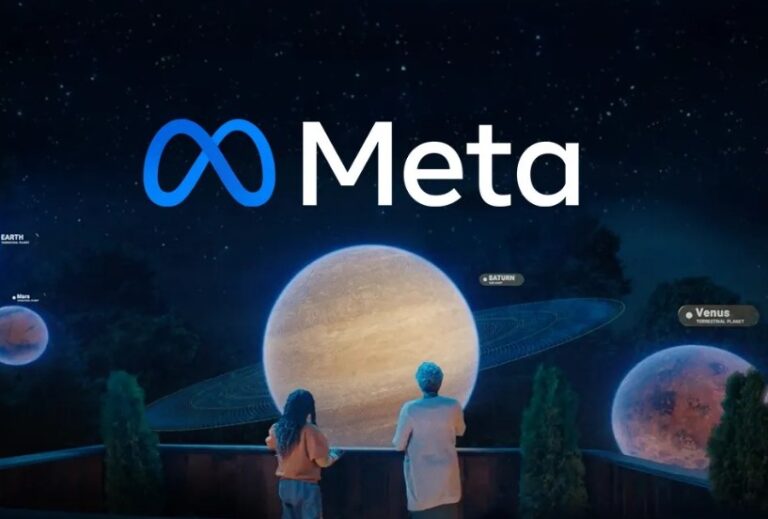So far, 2023 for Meta has been the year of largely positive quarterlies. As of June 30, earnings per share for Mark Zuckerberg’s group rose to $2.98 on revenues of $32 billion, surpassing analysts’ forecasts of $2.91 per share and $31.12 billion, respectively.
But let’s not forget that this is “the year of efficiency” for the Group, which is then Mark’s way of calling workforce cuts.
Table of Contents
The Metaverse’s black hole
However, the Metaverse hole remains to be plugged. According to some observers, the deal has already swallowed Menlo Park more than $40 billion. What is certain is that $30 billion is the amount that Meta lost from the last quarter of 2020 to the spring of this year for its Reality Labs division, which is focused on the latest innovations in development and thus also on the metaverse.
It is a bet that the Facebook patron does not want to let go, as evidenced by the fact that Meta continues to flood Europe with advertising about the metaverse.
Not only commercials, but also reports, interviews and podcasts. All this in an effort to push users, but more importantly public and private investors, to believe in its virtual paradise.
Facebook and Instagram for a fee?
It has been talked about for some time (last time it was the New York Times) and in the last period even the rumor (denied by the company) of a WhatsApp with advertisements started bouncing here and there.
According to the Wall Street Journal at least for Facebook and Instagram by now the games would be set and the figures defined. Namely, 13 euros to access versions of social without ads.
In fact, there would be several offers. 10 euros per month for FB or Instagram accounts from a computer and 6 euros for each additional linked account.
For users who wish to use the platforms on smartphones, which are then the majority, the monthly fee would rise to about 13 euros.
Read also: Podcasts, appeals and adverts: Meta’s desperate attempt to save its metaverse
What the company says
A Meta spokesperson told the Wall Street Journal that the company continues to believe in “free services supported by personalized ads” but is exploring “options to ensure compliance with evolving regulatory requirements.”
Those who will not want to shell out will have to accept being chased by personalized ads. More than the need to make cash, explains the WSJ, is the need to strike a deal with EU regulators who, as a result of the new data collection rules, would otherwise cripple the business model devised at Menlo Park.
Let’s not forget that Meta itself was recently fined 390 million euros by the Irish privacy commissioner for violating transparency obligations and adopting an incorrect legal basis in processing users’ personal data for advertising purposes.
Of the two, one is either to shut down in Europe or also offer a service that does not collect data, but in that case it will have to be paid for by users. Those who want to continue to access Facebook and Instagram without shelling out a penny will have to pay with their data.
How many users are there on the two socials?
According to WSJ rumors, Meta has told European regulators that it hopes to implement the ad-free plan, which it calls “subscription no ads” (i.e., subscription without ads – Sna), in the coming months for users in Europe.
It remains to be seen how much it will be able to earn, how many Internet users in short are willing to pay for a service that has been “free” forever.
In the first half of the year Facebook’s monthly users were 258 million, Instagram’s 257 million. In all on its apps it can count on 3.88 billion active people and it is clear that the expectation of a subscription could cause a hemorrhage of internees, all the more so now that Facebook is no longer so central in the multifaceted and changing geography of the web.
Not only Facebook and IG paid, even X
In this respect, however, Meta may be rescued by an unexpected ally: Elon Musk. Making social paid is in fact one of the few issues on which Elon and Mark seem to agree.
This, given that X may soon be paid as well, a fact that could push Facebook and Instagram users to accept that that is the new course for social.
Read also: Will Zuckerberg with Threads really beat Musk’s Twitter?












